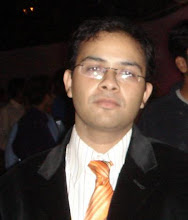I'd been hearing a lot about the way a particular scientist at my Institute speaks, and as an amateur linguist, I'm always fascinated by the choices people (and groups of people) make about syntax. Sometimes the choice of syntax can reveal quite a bit about the speaker, and its always interesting to see what information can be gleaned from this. Well, I finally had the opportunity to interact with him, and the level of overlap between his scientific and casual speech was significant.
Scientists as a group tend to allow complex technical jargon to seep into conversational English. While this happens in every occupational group, scientific English has its peculiarities. Scientific English is vociferously international, and regional variations and quirks are unacceptable. The nature of peer review among scientists enforces a common syllabary, which sometimes deviates significantly from standard English. Given the stringent of the field, synonyms are rarely tolerated. The language is argument based, with no room for ambiguity. Analogies and comparisons are the bread and butter of science, and this makes its way into common speech as well. My friends are well aware of (and irritated by) my strong tendency to draw analogies. In addition, modern science uses standard English terms to define new phenomena, unlike the older practice of graeco-latin etymology. Words such as termination, interference, silencing, screening, and selection have very specific meanings, which can differ significantly from the standard understanding. There are almost field-specific 'dialects'. For example, Prokaryotic and Eukaryotic geneticists speak variant, though mutually intelligible dialects. Of course, it's not very pronounced, but it's discernible.
Earlier this week, I was assisting my guide review a manuscript for an international peer-reviewed journal. I was struck by the relatively poor "genetics" dialect of the authors. While the logic of the article was fine, their argument was on shaky ground. The authors lacked a sound understanding of the language of genetics, which fails to impress reviewers. As I later discovered, the authors were medical doctors. The idea behind any communication in the scientific world is to effectively convey your observations, and defend your findings. The logic should build upon previous findings, and therefore must employ the same jargon.
Subscribe to:
Post Comments (Atom)

1 comment:
khotey
Post a Comment